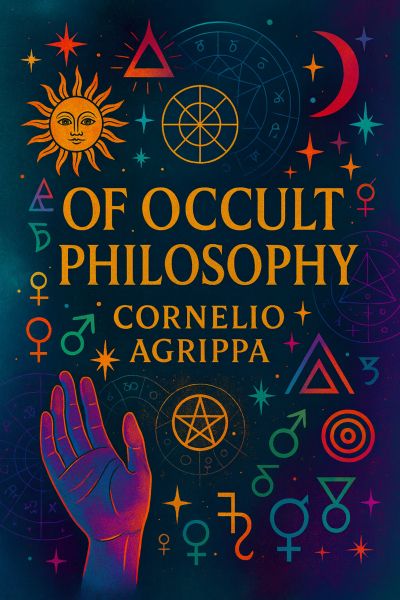Of Occult Philosophy
Of Occult Philosophy (De Occulta Philosophia, 1533) is the most influential work of Cornelius Agrippa, a Renaissance compendium of magical, esoteric, and philosophical knowledge that sought to integrate the wisdom of antiquity with Christian thought. Written in three books, the work presents a system of magic encompassing nature, the stars, and the divine—forming a bridge between science, religion, and mysticism.
In the first book, Agrippa explores natural magic, describing the correspondences among minerals, plants, animals, and the hidden forces of nature. The second deals with celestial or astrological magic, explaining the influence of the stars and the "music of the spheres" on human life. The third focuses on ceremonial and theurgic magic, related to the invocation of higher intelligences and spiritual purification.
Beyond superstition, Agrippa sought to grant philosophical dignity to magic, presenting it as a sacred science aimed at understanding the relationship between humanity, the cosmos, and God. Occult Philosophy became a foundational text of Western occultism, inspiring later thinkers, alchemists, and mystics in their search for hidden truth.
Heinrich Cornelius Agrippa (1486–1535) was a German physician, jurist, and philosopher of the Renaissance, renowned for his treatise Occult Philosophy. He traveled throughout Europe as a soldier and scholar, spreading Hermetic, Kabbalistic, and magical ideas. Though criticized by religious orthodoxy, he is regarded as one of the most influential figures in Western esotericism.
Versandkostenfreie Lieferung! (eBook-Download)
Als Sofort-Download verfügbar
- Artikel-Nr.: SW7502319078518110164
- Artikelnummer SW7502319078518110164
-
Autor
Cornelio Agrippa
- Verlag Aroha
- Seitenzahl 100
- Veröffentlichung 24.10.2025
- Barrierefreiheit
- ISBN 7502319078518
- Verlag Aroha

